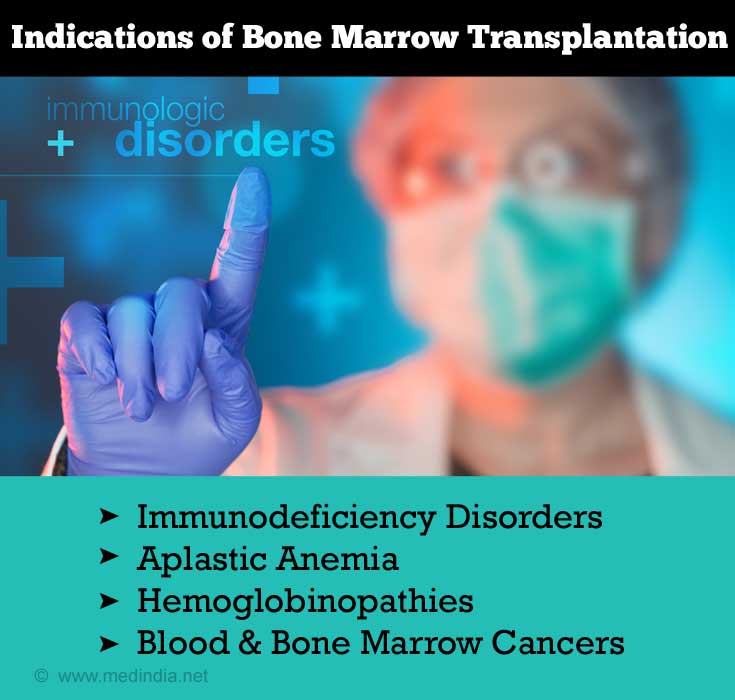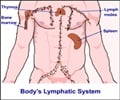Indications for Bone Marrow Transplantation
Bone marrow or Hematopoietic cell transplantation is used to treat various cancers and non cancerous conditions affecting blood and bone marrow.
Bone marrow transplantation/ Hematopoietic stem cell transplantation is used to replace nonfunctional or abnormal bone marrow stem cells with functional ones. It is used to treat the following conditions:
Immunodeficiency disorders: Patients with immunodeficiency have reduced immunity and can be cured with hematopoietic stem cells from a normal donor. Conditions that have been treated with transplantation include severe combined immunodeficiency, Wiskott-Aldrich syndrome and Chediak-Higashi syndrome.
Aplastic Anemia: Aplastic anemia is a condition where the bone marrow fails to produce red blood cells, thus resulting in a decline in hemoglobin levels. Hematopoietic stem cell transplantation helps to increase the red blood cell counts.
Hemoglobinopathies: Hematopoietic stem cell transplantation has also been used as a cure to treat patients with abnormal hemoglobin like thalessemia and sickle cell anemia.
Other blood disorders present from birth: Hematopoietic stem cell transplantation can cure a number of rare blood disorders present from birth like Kostmann’s syndrome, chronic granulomatous disease, leucocyte adhesion deficiency and Blackfan-Diamond anemia.
Blood and Bone marrow cancers: Hematopoietic stem cell transplantation is used in the treatment of leukemias, lymphoma, multiple myeloma and myelodysplasia.
Other cancers: Hematopoietic stem cell transplantation is an option for patients with cancer undergoing chemotherapy and/or radiation therapy that could potentially destroy the bone marrow.

















